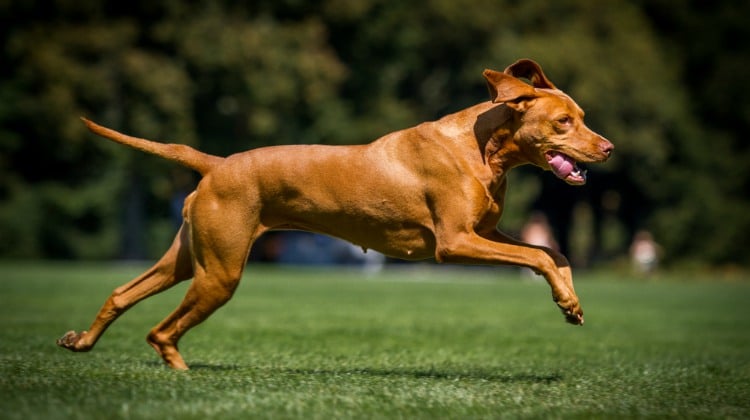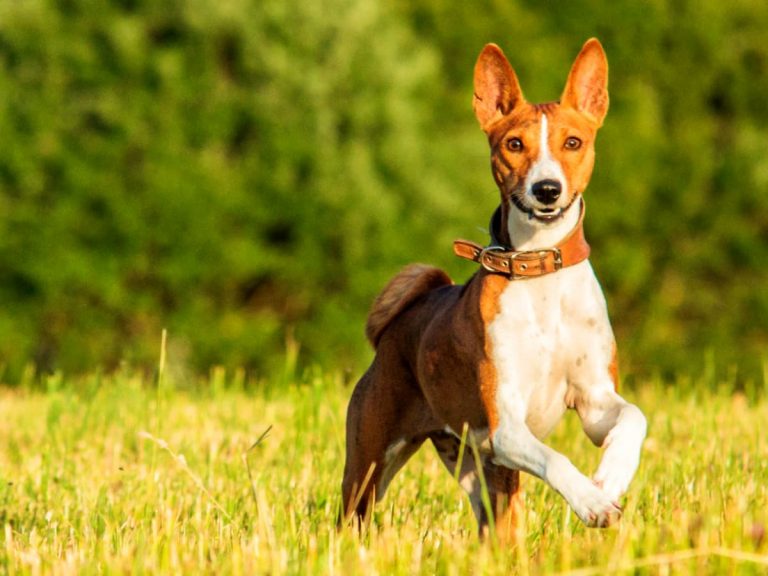Common Health Issues and Caring for Basenji Dog
The Basenji dog breed is renowned for its ancient heritage and unique traits, but like all living creatures, they are susceptible to certain health issues. Understanding these common health concerns is crucial for responsible Basenji owners and enthusiasts. While Basenjis are generally a hardy breed, they may be prone to specific conditions that can affect their well-being.
Basenji Dog Care: Addressing Common Health Issues
Among the common health issues faced by Basenjis are Fanconi syndrome, a kidney disorder that affects their ability to absorb vital nutrients, and progressive retinal atrophy (PRA), a degenerative eye disease leading to vision loss. Additionally, hip dysplasia, a hereditary joint condition, and hypothyroidism, a hormonal imbalance, can also occur. Regular veterinary check-ups, a nutritious diet, and an active lifestyle can significantly contribute to the overall health and longevity of these spirited and beloved companions.
Amazon Basics Standard Dog Poop Bags are convenient and get the job done. The rolls fit easily into dispensers, and the bags are sturdy enough for regular use. However, they lack eco-friendliness compared to other options. Overall, a decent choice for daily walks. Buy Now.
Basenji Health Issues
Basenjis are generally a healthy and hardy breed, but like all dogs, they can be susceptible to certain health issues. Responsible breeders work to minimize the risk of hereditary conditions through genetic testing and careful breeding practices. It’s essential for Basenji owners and potential adopters to be aware of the potential health concerns that can affect this breed to provide them with the best care possible.
Fanconi Syndrome
Fanconi Syndrome is a hereditary kidney disorder that affects the proximal renal tubules, leading to the improper reabsorption of important nutrients like glucose, amino acids, and electrolytes. As a result, these nutrients are lost in the urine. Early signs of Fanconi Syndrome include excessive drinking, frequent urination, and weight loss. Fanconi Syndrome can be managed through dietary adjustments and the administration of specific supplements to replace the lost nutrients.
Progressive Retinal Atrophy (PRA)
PRA is a group of genetic eye disorders that lead to the gradual degeneration of the retina. It eventually causes progressive vision loss and, in some cases, blindness. Unfortunately, there is no cure for PRA, and affected dogs will eventually lose their sight. Responsible breeders conduct genetic testing to identify carriers and avoid breeding affected individuals.
Hip Dysplasia
Hip Dysplasia is a common joint disorder in dogs, including Basenjis. It is caused by the abnormal development of the hip joint, leading to pain and limited mobility. While genetics can play a role, other factors like diet and exercise also influence its development. Keeping Basenjis at a healthy weight, providing regular exercise, and avoiding excessive impact on their joints can help reduce the risk of hip dysplasia.
Hypothyroidism
Hypothyroidism occurs when the thyroid gland doesn’t produce enough thyroid hormones, leading to various health problems. Symptoms include weight gain, lethargy, skin issues, and hair loss. Fortunately, hypothyroidism is manageable with medication, and affected dogs can lead normal lives with proper treatment.
Basenji Enteropathy
Basenji Enteropathy is a gastrointestinal disorder that can cause chronic diarrhea, weight loss, and poor coat condition. Its exact cause is not fully understood, but it is thought to have a genetic component. Dietary management and medications are usually required to control the symptoms and improve the dog’s quality of life.
Pyruvate Kinase Deficiency (PKD)
PKD is a hereditary condition that affects red blood cells’ ability to produce energy. It leads to hemolytic anemia, where the red blood cells are destroyed faster than they can be produced. Dogs affected by PKD may show symptoms such as lethargy, jaundice, and pale gums. While there is no cure for PKD, affected dogs can be managed through supportive care and blood transfusions if needed.
Regular veterinary check-ups are crucial to monitor the health of Basenjis and detect any potential issues early on. Providing a balanced diet, regular exercise, mental stimulation, and lots of love and attention are essential components of caring for Basenji’s overall well-being. Responsible breeding practices, including genetic testing and health screening, play a vital role in reducing the prevalence of hereditary conditions within the breed. By being proactive and attentive to their health, Basenjis can lead happy, healthy lives as beloved companions.
Amazon Basics Standard Dog Poop Bags are convenient and get the job done. The rolls fit easily into dispensers, and the bags are sturdy enough for regular use. However, they lack eco-friendliness compared to other options. Overall, a decent choice for daily walks. Buy Now.
Caring for a Basenji
Caring for a Basenji requires attention, patience, and understanding of their unique traits. Regular exercise is essential to keep this active breed mentally and physically stimulated. Basenjis are known to be escape artists, so a secure and enclosed yard is necessary to prevent them from wandering. Due to their short, fine coat, grooming is relatively low-maintenance, but they do shed, especially during seasonal changes. Brushing them weekly will help control loose hair. Basenjis are intelligent but independent, making training a challenge; consistent and positive reinforcement methods work best. Socialization from an early age is vital to help them get along with other pets and children. Additionally, regular veterinary check-ups, a balanced diet, and keeping up with vaccinations are crucial for their well-being. Lastly, Basenjis thrive on companionship, so spending quality time with them and providing mental stimulation will lead to a happy and contented Basenji companion.
What To Feed a Basenji?
Feeding a Basenji, a balanced and nutritious diet is crucial for their overall health and well-being. Providing the right food in the correct portions ensures they get the necessary nutrients for their active and spirited lifestyle.
How To Feed a Basenji?
When feeding a Basenji, it’s essential to establish a regular feeding schedule to maintain their metabolism and prevent weight gain. Divide their daily food into two meals, morning and evening. Choose a high-quality dog food that meets their specific life stage and activity level. Measure the appropriate portion size according to the feeding guidelines on the food package or as recommended by your veterinarian. Avoid overfeeding, as Basenjis are prone to obesity. Ensure fresh, clean water is available at all times. Finally, be consistent with their feeding routine and avoid feeding table scraps or human food, which can lead to digestive issues.
How Much Should You Feed a Basenji?
The amount of food to feed a Basenji depends on factors like age, weight, activity level, and metabolism. As a general guideline, adult Basenjis typically require 1/2 to 1 cup of high-quality dry dog food per day, divided into two meals. Puppies may need more frequent meals and slightly larger portions. Always follow the feeding guidelines provided on the dog food packaging and adjust according to your Basenji’s individual needs. Regularly monitor their weight and body condition to ensure they maintain a healthy and ideal weight throughout their life. Consult with your veterinarian for personalized feeding recommendations.
Amazon Basics Standard Dog Poop Bags are convenient and get the job done. The rolls fit easily into dispensers, and the bags are sturdy enough for regular use. However, they lack eco-friendliness compared to other options. Overall, a decent choice for daily walks. Buy Now.
Considerations for Pet Parents
As a responsible pet parent to a Basenji, there are several crucial considerations to ensure their health and happiness. Regular veterinary check-ups are essential for early detection of any health issues and to stay up-to-date with vaccinations and preventive care. Providing a balanced and nutritious diet tailored to their age and activity level promotes their overall well-being. Basenjis are active dogs, so daily exercise and mental stimulation are necessary to keep them physically fit and mentally engaged. Proper training and early socialization help shape their behavior and ensure they get along well with other pets and people. Regular grooming, including brushing their short coat, is essential for maintaining their hygiene. Above all, showering them with love, attention, and affection creates a strong bond and a fulfilling relationship between you and your Basenji companion.
Important Affiliate Disclosure
We at doglinked.com are esteemed to be a major affiliate for some of these products. Therefore, if you click any of these product links to buy a subscription, we earn a commission. However, you do not pay a higher amount for this. Rest easy as the information provided here is accurate and dependable.




